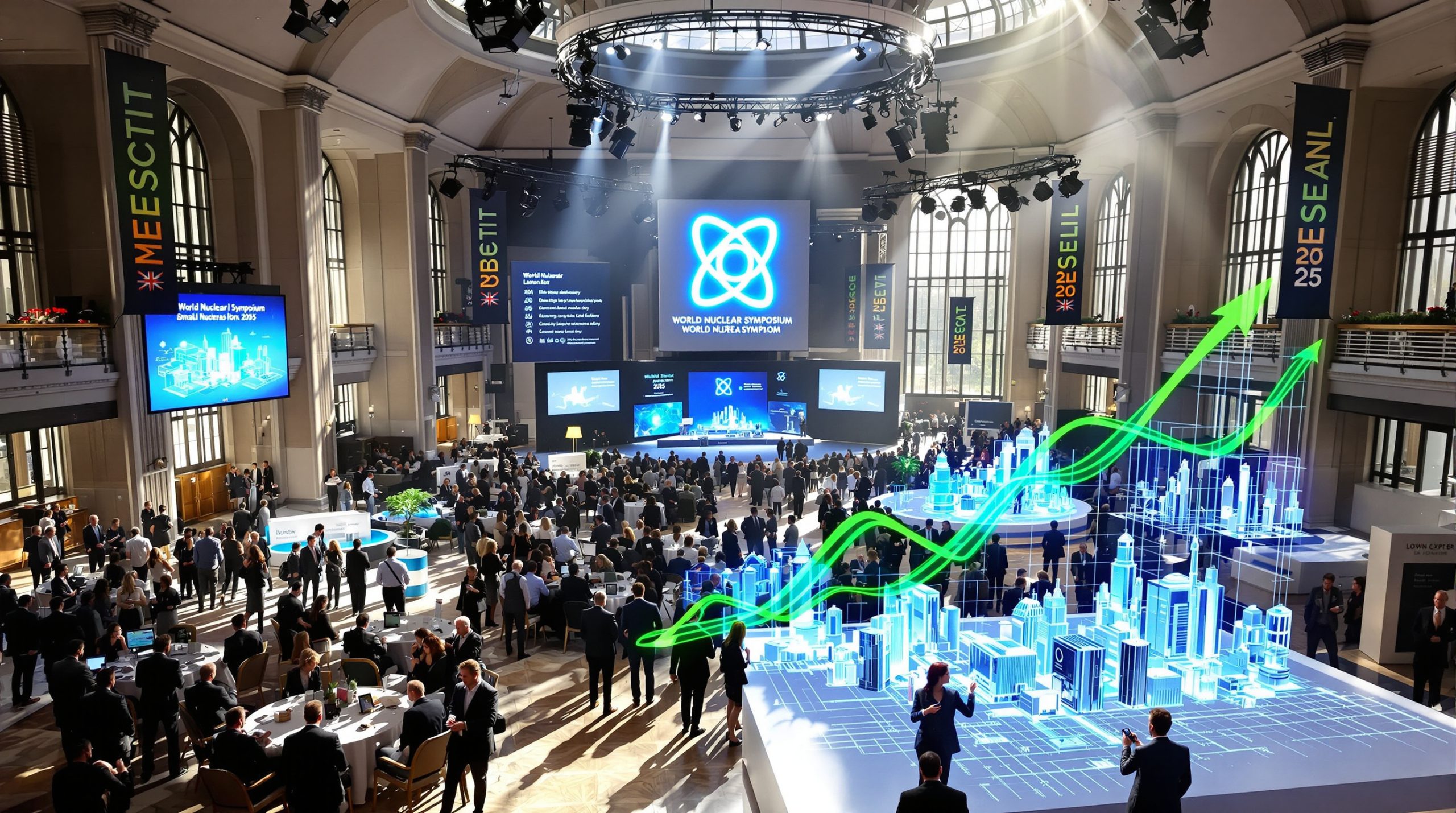Guinea Cancels Emirates Global Aluminium's Bauxite Mining License: What You Need to Know
In a significant development for the global mining industry, Guinea has taken decisive action to cancel Emirates Global Aluminium's (EGA) bauxite mining license. This move has sent shockwaves through international mining circles and raises important questions about resource nationalism, diplomatic relations, and the global bauxite supply chain.
The decision marks a critical escalation in tensions between the West African nation and the UAE-based aluminum giant, with potential ramifications extending far beyond the two parties directly involved.
What Led to Guinea's Decision to Cancel EGA's Mining License?
The roots of this conflict trace back to a customs duties dispute that erupted in October 2024. What began as a seemingly routine disagreement over regulatory compliance quickly escalated into a full-blown crisis that has now culminated in Guinea's move to revoke EGA's mining rights.
The Customs Duties Dispute Explained
The initial conflict centered on disagreements regarding customs duties that EGA was required to pay on its bauxite exports. While specific details of the disputed duties haven't been publicly disclosed, industry analysts suggest the conflict likely involves interpretation of Guinea's complex mining taxation structure that underwent revisions in recent years.
"The customs dispute reflects broader tensions about revenue sharing in Guinea's mining sector," explains Dr. Ibrahim Touré, mining policy expert at the University of Conakry. "The government has been pushing for increased domestic benefits from its vast mineral resources."
Timeline of the Deteriorating Relationship
The deterioration of relations followed a clear progression:
- 2019: EGA commenced operations in Guinea through its subsidiary Guinea Alumina Corporation (GAC)
- October 2024: Initial customs duties dispute emerged between GAC and Guinean authorities
- November 2024: First warnings issued by Guinea's mining ministry
- December 2024: Partial suspension of export permits
- January 2025: Complete suspension of EGA's bauxite exports
- March 2025: Mining activities halted at GAC's sites
- May 2025: Guinea initiates the process to revoke EGA's mining license completely
This rapid deterioration over just seven months reflects the severity of the disagreement and Guinea's hardening stance toward foreign mining operations.
Official Statements and Responses
A senior Guinean government official, speaking to Reuters in May 2025, confirmed: "We have initiated the withdrawal of GAC's mining license. A notification has been sent to this effect." The statement left little room for interpretation about the government's intentions.
EGA responded diplomatically, stating it would continue to "work hard to find a resolution with the government to resume our operations." Industry observers note the measured tone suggests EGA hopes to salvage the relationship despite the severe action taken.
The company has reportedly engaged both legal counsel and diplomatic channels through UAE government representatives to address the situation.
What is at Stake for Both Parties?
The dispute involves significant economic and strategic interests for both Guinea and Emirates Global Aluminium, making resolution complicated but potentially worthwhile for all stakeholders.
EGA's Guinea Operations and Assets
EGA's footprint in Guinea is substantial, encompassing:
- A 690km² concession area containing approximately 400 million tonnes of bauxite mineral resources
- Modern mining facilities representing hundreds of millions in capital investment
- Port facilities and specialized bauxite handling equipment
- An extensive logistics network for transporting bauxite from mine to port
Since beginning operations in 2019, GAC had established itself as a significant player in Guinea's mining landscape, with annual exports reaching 14 million tonnes by 2022.
Economic Impact on EGA and Guinea
The suspension of operations has already inflicted measurable damage on EGA's export volumes:
| Year | Bauxite Exports (wet metric tonnes) | Year-over-Year Change |
|---|---|---|
| 2023 | 14.1 million | – |
| 2024 | 10.8 million | -23.4% |
| 2025 | Projected significant decline | Potentially -100% |
For Guinea, the stakes are equally high. The mining sector accounts for approximately 35% of GDP and over 80% of export earnings, according to World Bank data. Disruption to a major producer like EGA could impact government revenues, employment, and economic stability.
Ownership Structure and Diplomatic Implications
EGA's ownership structure adds layers of complexity to the dispute:
- 50% owned by Mubadala Investment Company (Abu Dhabi sovereign wealth fund)
- 50% owned by Investment Corporation of Dubai (Dubai's sovereign wealth fund)
This sovereign ownership means the dispute isn't merely commercial but has elevated to potential diplomatic significance between Guinea and the United Arab Emirates. The UAE has substantial investments across Africa, and this dispute could influence its investment strategy throughout the continent.
How Does This Fit into Regional Resource Nationalism Trends?
Guinea's action against EGA does not exist in isolation but rather reflects a broader pattern emerging across resource-rich nations in West Africa.
Resource Control Movements Across West Africa
Several West African nations, particularly those currently under military leadership, have implemented policies aimed at increasing state control over natural resources:
- Mali: Revised its mining code in 2023, increasing state participation requirements and royalty rates
- Niger: Suspended multiple foreign mining licenses in 2024 pending "compliance reviews"
- Burkina Faso: Introduced new profit-sharing requirements for foreign mining companies
"We're witnessing a paradigm shift across the region," notes mining analyst François Diallo. "These governments are responding to long-standing public sentiment that national resources have been exploited without adequate returns to local economies."
Common Tactics in Resource Nationalism
Governments implementing resource nationalism typically employ several approaches:
- Revising mining laws and contracts to increase state participation
- Conducting "compliance audits" that often lead to penalties or license cancellation precedent
- Detaining mining executives to pressure companies (seen in Mali and Burkina Faso)
- Halting operations temporarily as negotiating leverage
- Confiscating products or equipment pending resolution of disputes
Guinea's approach with EGA follows this established playbook, suggesting the government may be seeking to renegotiate terms rather than permanently expel the company.
Industry Perspective: "Resource nationalism is often misunderstood as anti-investment, but it's frequently a negotiating tactic," explains Dr. Samantha Moyo, resource governance expert. "Countries want investors, but on terms that deliver more domestic benefits."
What Makes Guinea Important in the Global Bauxite Market?
Understanding Guinea's significance in global bauxite production provides essential context for appreciating the potential impact of this dispute.
Guinea's Position in Global Bauxite Production
Guinea holds a commanding position in the global bauxite industry:
- World's second-largest bauxite producer after Australia
- Produces approximately 88 million tonnes annually (USGS data, 2024)
- Holds estimated reserves of 7.4 billion tonnes—roughly 25% of global reserves
- Bauxite quality averages 40-60% aluminum oxide content, among the highest grades globally
This production capacity gives Guinea significant leverage in negotiations with international mining companies, as finding alternative sources of high-quality bauxite at scale presents challenges for aluminum producers.
Strategic Importance of Bauxite in Global Supply Chains
Bauxite occupies a critical position in global supply chains:
- Primary resource: Approximately 90% of mined bauxite is converted to alumina, then to aluminum
- Essential material: Aluminum is crucial for aerospace, construction, automotive, and packaging industries
- Energy transition: Growing demand for aluminum in electric vehicles and renewable energy infrastructure
- Chinese dependence: China imports roughly 70% of Guinea's bauxite output, making it particularly vulnerable to supply disruptions
This strategic importance explains why the EGA dispute has implications far beyond Guinea's borders, potentially affecting aluminum prices and availability worldwide.
What Are the Potential Outcomes of This Dispute?
Several scenarios could unfold as this situation develops, each with different implications for the parties involved and global markets.
Possible Resolution Scenarios
The most likely outcomes include:
-
Negotiated settlement: EGA agrees to revised terms, potentially including higher royalty payments, increased Guinean ownership percentage, or enhanced infrastructure commitments
-
Temporary suspension followed by reinstatement: License remains suspended while negotiations continue, ultimately leading to a modified agreement
-
Complete withdrawal: EGA exits Guinea, with assets potentially acquired by another international mining company or a Guinean state entity
-
Legal challenges: EGA pursues international arbitration under bilateral investment treaties, seeking compensation for what it might characterize as expropriation
-
Diplomatic intervention: UAE government intervenes at a diplomatic level to broker a solution favorable to EGA while offering Guinea other investment or developmental benefits
Industry experts suggest the most likely outcome involves a negotiated settlement, as both parties have strong incentives to resolve the dispute.
Implications for Other Mining Companies
The EGA situation creates important considerations for other international mining operations in Guinea:
- Precedent concerns: If Guinea secures concessions from EGA, it may pursue similar strategies with other operators
- Contract reviews: Other companies may face increased scrutiny of their existing agreements
- Risk reassessment: Mining firms may reassess the political risk premium for Guinean operations
- Strategic preparation: Companies might proactively offer enhanced benefits of mineral beneficiation to preempt similar actions
Major mining companies including Rio Tinto, Alcoa, and Rusal—all with significant bauxite interests in Guinea—are likely monitoring developments closely.
How Might This Affect Global Bauxite Supply?
The dispute has both immediate and potential long-term implications for bauxite markets and aluminum production.
Short-term Market Disruptions
Immediate effects of the license cancellation include:
- Supply uncertainty: A 10-14 million tonne annual supply gap (equivalent to approximately 3% of global production)
- Price volatility: Potential spot price increases for bauxite, particularly affecting Chinese buyers
- Inventory drawdowns: Aluminum producers relying on Guinean bauxite may deplete stockpiles
- Contract renegotiations: Aluminum producers may seek force majeure clauses or price adjustments with customers
Historically, supply disruptions of this magnitude have caused 5-15% price increases in bauxite markets, depending on prevailing inventory levels.
Long-term Investment Climate Impact
Beyond immediate market effects, the dispute may influence strategic decisions:
- Diversification efforts: Aluminum producers may accelerate efforts to develop bauxite project benefits in countries perceived as having more stable regulatory environments
- Risk premiums: Investment in Guinea's mining sector could require higher returns to offset perceived political risks
- Contract structures: Future agreements may include more robust stabilization clauses and international arbitration provisions
- Chinese strategy: China, as the primary consumer of Guinean bauxite, may pursue more direct state-to-state agreements to secure supply
Expert Assessment: "The real impact will be determined by how Guinea handles not just this dispute but its aftermath," notes mining sector analyst Jean Kubwimana. "Will this be seen as a one-off correction or the beginning of a systematic recalibration of mining agreements?"
What Should Stakeholders Monitor Going Forward?
As this situation evolves, several key indicators will signal the likely direction and resolution of the dispute.
Key Indicators to Watch
Stakeholders should closely monitor:
- Diplomatic exchanges: Official communications between Guinea and UAE governments
- Legal filings: Any formal arbitration requests or court proceedings
- Guinea's approach to other mining companies: Whether similar challenges emerge for other operators
- Bauxite market metrics: Price movements, inventory levels, and shipping data
- Alternative supply development: Acceleration of bauxite projects in Australia, Indonesia, or elsewhere
- Chinese positioning: Whether China takes diplomatic or commercial steps to secure its bauxite supply chain
These indicators will provide early signals about the dispute's trajectory and potential resolution timeline.
Potential for Precedent-Setting Outcomes
The resolution of this dispute could establish important precedents:
- Contract sanctity: How binding are mining agreements in periods of changing government priorities?
- Compensation standards: If expropriation occurs, what compensation metrics apply?
- Negotiation frameworks: What process emerges for resolving resource nationalism disputes?
- International arbitration: How effective are investment treaties in protecting mining interests?
These precedents will influence risk assessments and investment decisions across the mining sector, particularly in jurisdictions with similar resource nationalist tendencies.
FAQs About the Guinea-EGA Mining License Dispute
What is bauxite and why is it important?
Bauxite is the primary ore used in aluminum production, containing 30-60% aluminum oxide (alumina). After mining, bauxite undergoes the Bayer process to extract alumina, which is then converted to aluminum through electrolysis.
The ore is essential for:
- Construction materials (windows, doors, structural components)
- Transportation (aircraft, automobiles, trains)
- Packaging (beverage cans, food containers)
- Electronics and electrical transmission
- Renewable energy infrastructure
Approximately 85% of all bauxite mined globally is ultimately processed into aluminum metal.
How significant is EGA's operation to Guinea's economy?
EGA's Guinea Alumina Corporation represents:
- Approximately 14% of Guinea's total bauxite exports
- Direct employment for over 2,000 Guineans
- Indirect support for an estimated 10,000 additional jobs
- Significant tax and royalty payments to the national treasury
- Infrastructure investments including roads and port facilities
The operation is among Guinea's largest mining projects and a key contributor to the country's export earnings.
Could this dispute affect global aluminum prices?
While Guinea is the world's second-largest bauxite producer, several factors will determine the impact on aluminum prices:
- Supply chain buffers: Most large aluminum producers maintain 3-6 month bauxite inventories
- Production alternatives: Australia could potentially increase output to partially offset Guinean disruptions
- Demand conditions: Current global economic slowdown has moderated aluminum demand growth
- Market anticipation: Markets may have already priced in some disruption risk
Historically, raw material supply disruptions of this magnitude have caused 5-10% increases in aluminum prices when sustained beyond 3-4 months.
What options does EGA have to challenge the license cancellation?
EGA has several potential avenues to address the license cancellation:
- Direct negotiation: Engaging with Guinean authorities to resolve the customs dispute and restore the license
- International arbitration: Pursuing claims under bilateral investment treaties between UAE and Guinea
- Diplomatic channels: Requesting UAE government intervention to negotiate a state-to-state resolution
- Legal remedies: Challenging the cancellation in Guinean courts based on administrative procedure
- Strategic partnership: Bringing in a Guinean partner to increase local ownership and rebuild government relations
Most mining disputes of this nature ultimately resolve through negotiated settlements rather than complete withdrawal.
Are other foreign mining companies in Guinea at risk of similar actions?
The precedent established by EGA's case could affect other operations, particularly:
- Companies with similar customs or tax disputes
- Operations working under older mining agreements with less favorable terms for Guinea
- Projects that have failed to meet development timelines or production targets
- Operations with environmental compliance issues
Companies most likely monitoring the situation closely include Rio Tinto, Alcoa, and Rusal, all with substantial bauxite interests in Guinea. Furthermore, the ongoing trade war impacts between major economies could further complicate the situation for international mining firms, as they navigate both political tensions and industry innovation trends in this challenging landscape.
Disclaimer: This analysis represents the situation as of May 2025 based on available information. Mining disputes are complex and dynamic, with rapid developments possible. Investors should conduct their own due diligence before making decisions based on this information.
Want to Stay Ahead of Major Mineral Discoveries?
Discovery Alert's proprietary Discovery IQ model analyses ASX announcements in real-time, alerting you to significant mineral discoveries before the broader market reacts. Explore our dedicated discoveries page to see how early identification of mining opportunities can transform your investment strategy.




